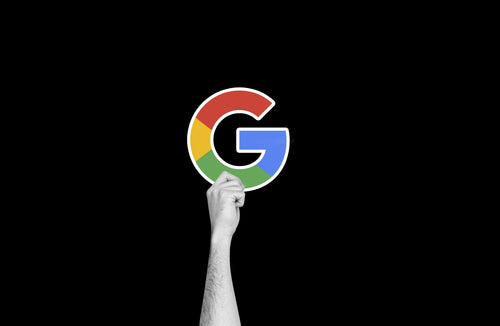In today's digital world, having an effective online presence is crucial to the success of any business . This presence can (and should) exist on all communication channels between users and brands. Or, at least, on the channels where their potential customers are.
One of those channels is Google, along with other search engines , such as Bing or DuckDuckGo.
In it, company pages can appear through two similar yet different strategies: SEO and SEM .
Therefore, in this post we will explain what SEO and SEM are, as well as the differences between them .
What is SEO?
SEO (Search Engine Optimization) focuses on improving a website's position in organic search results , i.e., the results for which Google isn't paid. These results include both those that appear below ads and those that appear on maps— local SEO results.
Working on SEO involves optimizing content with keywords detected through keyword research, as well as improving the site's structure and architecture, among other things. This way, the page will be more relevant to Google and will rank higher when a user searches for content included on that page.
What is SEM?
SEM, on the other hand, refers to advertising done on search engines . In reality, SEM is part of a larger program, PPC (Pay Per Click), which also includes advertising done on other channels, such as social media.
Other digital marketing perspectives consider SEO as part of SEM, but we're going to use the "classic" approach, separating them into two distinct channels (which, in fact, they are).
Main differences between SEO and SEM
Now that you know what SEO and SEM are, the next step (and what you're here for) is to explain the differences between them in detail.
SEO and SEM are distinguished by four aspects: objective, cost, control and time .
Aim
Here we are not referring to the ultimate goal of achieving sales (although that is what is sought), but rather to the purpose, the reason why SEO or SEM, or both, are being worked on .
- SEO : As we mentioned before, it works to organically position your website in search results . SEO aims to make your website appear at the top of search results naturally, without paying for it.
- SEM : Its objective is to gain visibility through paid ads in search results. These results will appear before free results and compete with other brands or companies that also advertise through Google or another search engine.
Cost
- SEO : SEO doesn't follow the "pay-per-click" model. It does require an initial investment of time and effort to optimize your website, but there's no cost for each user who visits your website through organic search results.
- SEM : Follows the "pay-per-click" model. SEM requires ongoing investment in advertising, and Google is paid for each click a user makes on our ad .
Control
- SEO : SEO has less (or no) control over user segmentation . However, once a website is optimized for SEO, it can maintain a favorable ranking in search results for an extended period of time, although this is not always the case.
- SEM : You have immediate control over your ads and their targeting : which ads are shown, the keywords you bid on, and the target audience you're targeting. However, Google always allows itself "some leeway" when displaying ads, for example, automatically optimizing them based on user behavior on the website.
Time
- SEO : SEO offers long-term results ; they aren't as immediate as those of SEM. However, the good thing is that these results are more stable and generate a steady flow of traffic to the website over time.
- SEM : SEM, on the other hand, offers immediate, but temporary, results . That is, if ad spending drops or disappears, the website won't rank well on Google anyway. And that's something no one wants.
Advantages and disadvantages of SEO and SEM
Like everything else, these strategies offer both positive and negative aspects. Although we've already outlined them in the section on the differences between SEO and SEM, here we'll clarify the advantages and disadvantages of both.
SEO
Advantages:
- It is a strategy whose results are very stable over time.
- It is more profitable, since you don't have to pay anything to Google.
- Helps improve brand image and website authority.
Disadvantages:
- It is a slow process that requires time and effort.
- The results are not immediate.
- You have less control over what Google displays on your page.
SEM:
Advantages:
- Unlike SEO, it is a quick strategy that can generate immediate results.
- It allows almost absolute control over the results that appear.
- It is a more effective way to reach the target audience, as it offers high segmentation (age, gender, location, etc.).
Disadvantages:
- It is more expensive than SEO, as it requires constant investment.
- Results are not sustained in the long term if you stop paying for ads.
- It can be difficult to compete with other advertisers for the same keywords.
So, which is better, SEO or SEM?
Objectively, it can't be said that one strategy is better than the other , as both SEO and SEM have their own advantages and disadvantages, as we've seen before. So, when choosing one or the other, you'll need to consider your goals, resources, and budget .
That said, we can give you some general advice on whether you want to choose between SEO or SEM:
Choose SEO if:
- You have a limited budget . SEO doesn't require a significant financial investment, making it a good option for startups or small businesses.
- You want to build long-term relationships with your customers . SEO helps create a strong and reliable online presence, generating greater trust with your target audience.
- You're targeting a broad audience . SEO can help you reach a broader audience, as it's not limited to people actively searching for your products or services.
Choose SEM if:
- You're looking for quick results . SEM generates immediate traffic to your website, in exchange for a significant investment, according to the competition.
- You're targeting a very specific audience . You can segment your ads to target very specific people.
- You have a flexible budget . SEM can be an expensive strategy, but if you have a large budget and a good investment strategy, it will be your ideal channel.
Is it possible to use SEO and SEM together?
It is not possible: it is necessary.
Indeed, for an effective online marketing strategy, it's recommended to combine SEO and SEM . Regardless of your budget, target audience, and time commitment, the two strategies complement each other perfectly:
- Greater online visibility : If you work on both channels, your website will appear in paid search results and, further down, in organic results. This will help you reach a broader audience, especially considering that many users don't even spend time looking at ads.
- If you reduce your investment in SEM (or your competition increases it) but work on SEO at the same time, you'll still appear on the first page of Google even if your ad disappears from the paid results.
- You can position yourself organically on Google and use SEM for targeted promotions aimed at a very specific audience, which would take time to reach (or not at all) using SEO alone.
In fact, our recommendation as a digital marketing agency is that, if possible, you should work on both SEO and SEM . If you only work on SEO, especially when your website is new, it will take months to see the first results. However, if you only work on SEM, you'll always be relying on an investment that no one knows will continue to be available in the future.
Do you want to work on SEO or SEM to generate sales through Google?
Look, we've only talked so far, but we can also do something. To achieve this, at Maktagg , we have a team of SEO experts and another team of SEM experts.
Although there are differences between the two channels, as we've seen, they still provide perfect feedback to each other , as long as the right actions are taken. Do you want us to do it?
Fill out the form and climb the rankings in the world's most used search engine!




 https://maktagg.com/blogs/blog-marketing-digital
https://maktagg.com/blogs/blog-marketing-digital










